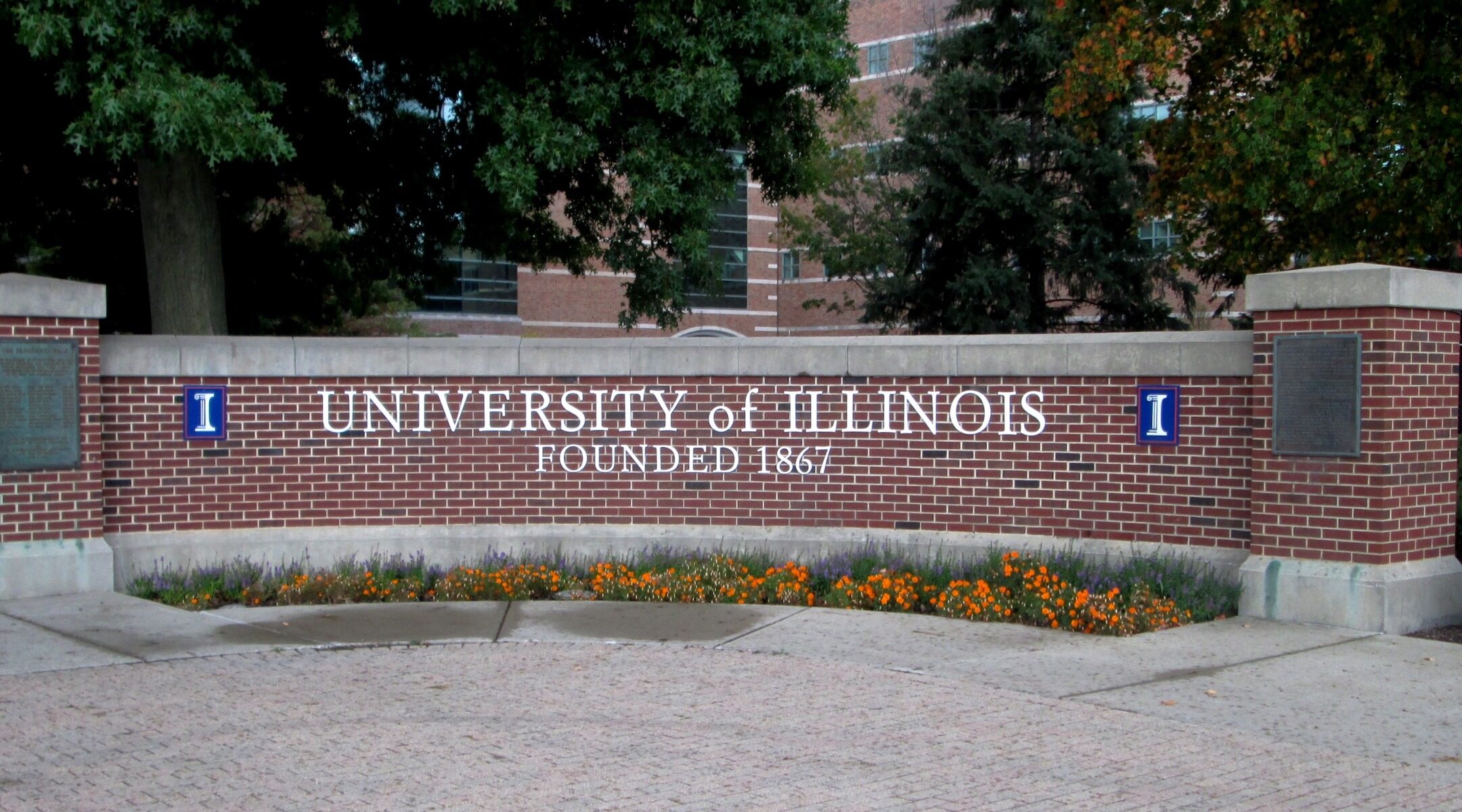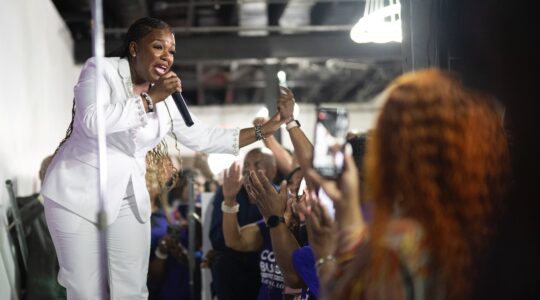(JTA) — A complaint filed with the Department of Education’s Office for Civil Rights alleges that Jewish students at the University of Illinois at Urbana-Champaign “faced an unrelenting campaign of anti-Semitic harassment.”
A Friday statement announcing the complaint said that Jewish and pro-Israel students in the past five years “have been subjected to an alarming increase in anti-Semitism and anti-Zionism” and that the university did not take adequate action.
The complaint was prepared by the Louis D. Brandeis Center for Human Rights Under Law and Arnold & Porter Kaye Scholer LLP on behalf of Jewish students at the university. It was done in consultation with the Jewish United Fund, and Hillel International.
A summary of the complaint, originally filed in March, detailed a number of incidents where swastikas were found on campus and Jewish buildings and ritual items were vandalized. It also included events that displayed virulent anti-Israel rhetoric, which it said made campus inhospitable for Jewish and pro-Israel students.
“We gave UIUC seven months since the complaint was filed to address the ongoing harassment. In the face of continuous stall tactics and almost no action from the university, we decided to publicize our efforts,” Brandeis Center President Alyza Lewin said in the statement.
University spokeswoman Robin Kaler told the Chicago Sun-Times that its accrediting organization had found in March that the allegations “do not indicate substantive noncompliance with their requirements and that no further review would be conducted.”
Last year, President Donald Trump signed an executive order that made the Civil Rights Act of 1964 apply to Jewish college students. The order meant that students could now file complaints, such as the one at the University of Illinois, alleging discrimination against them on campus. The executive order was controversial because it was seen as opening up the possibility for the Department of Education to withhold funding from schools seen as fostering an anti-Israel environment, which critics said was antithetical to free speech.






